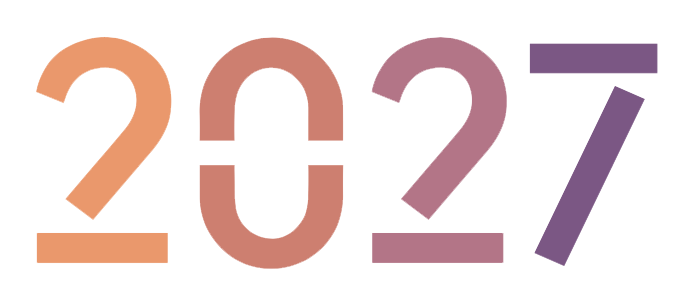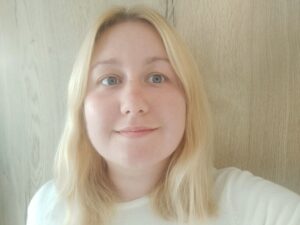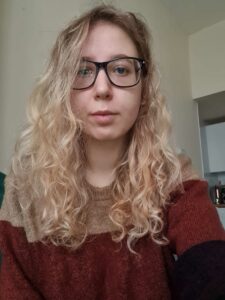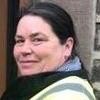by Madeleine Trubee, 2027 Associate
In 2022, I was about to start my journey on the 2027 Programme and with Battersea. Now, a year later, one journey has come to an end and the other is just beginning. The last year with 2027 and Battersea has been and will continue to be one of the most valuable experiences of my life.
Class […] deeply intersects with most other marginalised identities
In September 2022, I joined the Grants Team at Battersea. My journey to get here however is unlike most of the workforce as I was matched with the organisation through a Programme called 2027 which is a 10-year project (started in 2017) designed to transform decision-making in UK grant-making, by bringing in people from working class backgrounds into a traditionally middle-class sector. They chose class as it deeply intersects with most other marginalised identities. This has resonated deeply, as I have experienced firsthand how class and gender intersect, and how this can span generations of women, leaving many disenfranchised and often limited to be on low to no income.
The grant giving sector provide £7bn of funding each year in the UK. Yet, it is a sector that is in no way representative of the communities it serves, with research showing that foundation trustees are 99% white, more than two-thirds male, 58% over 64 years old and 74% above the median income. 2027 hopes to address this by increasing the number of people from working class backgrounds and with valuable lived experience into Grant making.
Throughout this Programme, I have had access to mentoring and full professional development, a cohort/network, and masterclasses delivered by prominent members of the grants sector such as Derek Bardowell and Ruth Ibegbuna. One of the key parts of the programme was our Peer Support sessions, which worked to build our confidence in ourselves, and help us recognise that we all have something valuable to give. They also allowed us to learn and practice different leadership styles, coaching techniques, public speaking, and to explore different approaches to Diversity, Equity and Inclusion (DEI). Through 2027, I have gained a network of diverse people, who I can reach out to for learning, guidance and support, providing a community of professionals that I would have been unable to access otherwise.
As a working-class woman, who comes from generations of women who never had the opportunity to have careers, to go to university, or to do much outside of the home. Battersea giving me the opportunity to work alongside such brilliant women, many with similar experiences to me
Battersea is the only animal welfare organisation that has participated in the Programme since its inception. This has given me a unique experience, as I have got to learn about the relatively niche sector of grant-making within animal welfare, via one of the most famous Cat and Dogs homes in the world, whilst being a part of a cohort of human facing charities with focuses ranging from women’s rights to climate justice. I was able to learn from and collaborate with leading people in the Grants sector and see how the learning can be applied to Grant making within animal welfare.
Being a representative of an animal welfare organisation was a learning curve for 2027, as much of the ideas and sessions are intended for people focused organisations. However, so much of what I learnt is easily transferable, such as the importance of trust and humility in grant making, as well as the importance of organisations being representative of the people from the communities they serve. Equally, the 2027 Programme and my Battersea colleagues have challenged, encouraged, and supported me to drive thought leadership on how DEI plays out in animal welfare, including in relation to how we can help more animals by applying a DEI lens.
I bring to Battersea an important lens gained through my lived experience, lived experience that when I started at Battersea and on the 2027, I did not value.
During my time at Battersea, I have been given many opportunities to grow, I have seen how trust and honesty is the foundation of an impactful funder and of meaningful grantee collaboration. Throughout my first year in grant making and animal welfare, I have seen how deep the passion runs in this sector, and how much love and expertise there is, all funnelled towards the betterment of the lives of cats and dogs around the world.
As a working-class woman, who comes from generations of women who never had the opportunity to have careers, to go to university, or to do much outside of the home. Battersea giving me the opportunity to work alongside such brilliant women, many with similar experiences to me has been invaluable in my development and has made me feel included and seen as a working-class woman. Within the grants team and global programmes, I have learnt from such brilliant women, who put care, inclusion and expertise into everything they do.
Our most prominent and loved ambassador Paul O’Grady was not only a Queer icon but also a Working Class one. Battersea has invested in me and allowed me to develop a plethora of skills, meet so many wonderful people and gone to places I may have never had the luxury of experiencing, such as Sri Lanka, Cyprus and a 2027 residential in Telford. In turn, I bring to Battersea an important lens gained through my lived experience, lived experience that when I started at Battersea and on the 2027, I did not value.
I’m proud to work at Battersea and of our unwavering commitment to helping struggling owners and their pets. I have had my pets registered with the PDSA, had my cats neutered through the C4 scheme, and as a family have had to consider relinquishing our pets when losing our house and technically becoming homeless. I can empathise with the trauma of having to give up a pet due to financial insecurity, and the guilt of knowing your pet needs vet care but having no way of affording it. Through my journey with Battersea and 2027, I have come to realise that there is not one way to be valuable in a job, and it is within the diversity of the human experience that we can all learn and grow.
Moreover, our work is not limited to just cats and dogs, and it is often more involved with the pet guardians and the people who care for and are connected to the animals that we work with. As the Academy puts it “we are in the business of people”. Every class of people owns cats and dogs, and it’s important to represent the people we seek to help.
–
Madeleine Trubee is a 2027 Associate and Grants Coordinator at Battersea.




Recent Comments